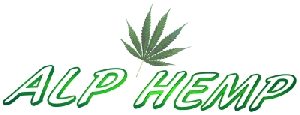

|
Belgium decriminalises cannabis The government says the move 'increases personal freedom' Belgium - - The possession of cannabis, for personal use, will no longer be a criminal offence in Belgium. Prime Minister Guy Verhofstadt said on Friday a royal decree would be issued instructing prosecutors not to pursue people for possessing the drug. But ministers stressed Belgium will not copy the Netherlands where cannabis and cannabis derivatives are sold through licensed coffee shops. The production, supply, sale and ownership of larger quantities will remain actively prosecuted, as will the use of cannabis which leads to unsociable behaviour. "This is a policy that is being followed in many of the countries in the European Union," Verhofstadt told a packed news conference. "We are not penalising individual users of cannabis, but we are concentrating on production, distribution or problematic use." Health Minister Magda Alvoet said the move would increase personal freedom. "The criminal judge won't interfere any more in lives of people who use cannabis on a personal basis and who do not create harm or do not become dependent," she said. "We want to create an extra space of liberty, but we want to do it in a controlled manner." The new regulations treat cannabis on a par with alcohol and nicotine in terms of the health risks it poses. But there are substantial grey areas that will be left up to the judiciary to decide. The royal decree will not give any indication of what quantities of cannabis are considered for personal use. With one eye on neighbouring France, which is furious at the tide of soft drugs arriving from the Netherlands, Verhofstadt stressed the new policy would not throw open the doors on a new era of drugs in Europe. Belgium, France and the Netherlands belong to the Schengen group of countries which do not have checks on their mutual borders. The Netherlands' liberal drug policies are a constant source of friction with Paris, which blames them for many of the country's drug problems. But Alvoet said the new regulations would bring Belgium in line with Italy, Spain and Portugal, which are all easing their regulations on the personal use of cannabis. January 19, 2001 Web posted at: 5:03 PM EST (2203 GMT) BRUSSELS,
CANNABIS USE NO LONGER ILLEGAL Who wants a joint, should grow or go to the Netherlands
BRUSSELS - Soon, use of 'soft' drugs will no longer be illegal. To this aim, the 1921 law will be adjusted and there will also be a royal decree. This means more legal security for occasional users of cannabis. But where they get their stuff, they will have to find out for themselves. The core cabinet has resolved the drugs issue yesterday with an honorable compromise. Use of cannabis will not be removed from the penal code, as the Greens and the PS wanted initially. The user gets more legal security than is the case now, with the circular letter. In the drugs law of 1921 a provision is written that allows a separate approach to soft- and harddrugs, and to problematic and non-problematic use. Wat this other approach exactly entails, will be regulated with a royal decree and a circular letter. Someone who smokes cannabis will at least no longer receive a booking. Using cannabis is allowed, as long as there is no social nuisance or problematic use. Driving under the influence is not allowed; and who is seriously addicted will be guided into drug aid. The government has not chosen to determine the amount of grams of cannabis allowed. In this way, the discussion about 5 grams as in the VLD-version versus 15 grams as in the Agalev-version was neatly avoided. No problem, says Department of Health Minster Magda Aelvoet. The police services have sufficient experience to know from how many grams use of soft drugs becomes problematic. But, she admitted, there will always be room for interpretation for police services. Problematic use may mean something different in the city of Brussels than in Betekom-village, just like nuisance means something else in both municipalities. About growth and sale the drugs compromise says nothing. Positions were too far apart for that. Who wants to smoke a joint, will have to grow themselves or make a trip to the Netherlands. In the case of harddrugs there no longer is an abbreviated booking in the case of use, a left-over from the original drugs proposal. There will always be a booking. But the ways in which the office of the prosecutor deals with the booking will be extended. In this, it will always be the intention to keep drug users out of prison and guide them to drug aid. The drugs proposal gives a lot of attention to aid and prevention. Half a billion franks will be spent additionally for it as well. VU thinks the proposal is a half-hearted compromise Senators Patrick Van Krunkelsven and Vincent Van Quickenborne (VU&ID) think the government's compromise on use of cannabis is half-hearted. It still contains unclarities. "Growing is not allowed, so where will you get the stuff. Supply from the Netherlands is cumbersome and illegal, since importation of cannabis remains an offense." Moreover, the prosecutors continue to judge who is a problematic user. This leaves room for interpretation, according to the VU&ID-senators, who stick to their proposal: a maximum of 15 grams in your pocket, no booking or seizure below that limit, and as much transferral to drug aid as possible. -------------------------------------------------------------------------- The Legalize! Initiative is an international action forum for all people concerned about the effects of current drug policy. Join us at http://www.legalize.org. global@legalize.org is our general discussion list. To unsubscribe from this list, send a message to majordomo@legalize.org, with unsubscribe global as text of the message. -------------------------------------------------- |
|||||||||||
|
Sponsors et Hébergement |  |  |  |
..